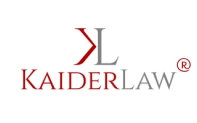Trademark Oppositions
If the examiner of your application determines that there is no reason to refuse your application, it will proceed to a stage called "publication for opposition." At that point, the application is published in the USPTO's Official Gazette. Anyone who believes that they may be harmed by the registration of your mark then has 30 days to file an opposition proceeding, or to request more time to do so.
While oppositions are relatively rare, they do happen. The proceeding itself is similar in many ways to a trial, in which briefs must be filed, discovery may be taken, and eventually a hearing may take place before the Trademark Trial and Appeal Board. Ignoring the complaint in an Opposition will result in a default judgment against you and your trademark application will become abandoned.
While oppositions are relatively rare, they do happen. The proceeding itself is similar in many ways to a trial, in which briefs must be filed, discovery may be taken, and eventually a hearing may take place before the Trademark Trial and Appeal Board. Ignoring the complaint in an Opposition will result in a default judgment against you and your trademark application will become abandoned.
Trademark Cancellations
After the USPTO registers your mark, a third party who believes the mark should not have been allowed may still challenge your mark through a cancellation proceeding. A cancellation is very much like an opposition in that it requires the filing of various legal briefs, taking discovery, and may include a hearing.
We Can Help
As with any other form of trial, legal representation is essential in these proceedings. Our attorneys not only have expertise in trademark law, but extensive litigation experience, as well. We can help you navigate this process as efficiently and effectively as possible, including attempting to negotiate a settlement with the opposing party.

